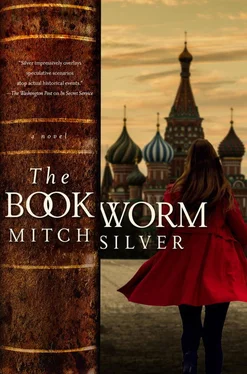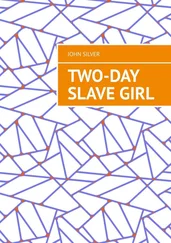“All right, Lara. Your text on Soviet history… to have come at it from such a different angle, to have done so much, broken so much new ground while we were still under Gorbachev and his crowd…”
It wasn’t phrased as a question, but he seemed to be waiting for a response. Lara said, “I was a junior instructor in America, earning a few dollars a month in hard currency from New York University for the Soviet Union, when my dissertation was published. I suppose I had the benefit of distance.”
She thought about that for a moment. “If you’ve read me, then you know my specialty is geo history. How geography—rivers, mountains, climate, and especially the presence, or absence, of natural resources—determines a people’s history far more than we like to think… and political dogma, of any kind, far less.”
Gerasimov smiled. “Not something the children of Lenin wanted to have get around.”
Lara smiled back. “No, I suppose not. As far as having done so much? Well, historians are thinkers, not doers. We need that distance I mentioned, whether it’s measured in years or miles, so the things other people do can arrange themselves in patterns we’re able to perceive. Still, thank you for the nice words, Director.”
“My friends call me Grisha.”
“Thank you… Grisha.”
They ordered some impossibly expensive dishes. Then, back in the mother tongue, Gerasimov said, “I’ve been going to school on you. I know you’ve been a ‘talking head’ once or twice on a couple of our political panel shows. One thing isn’t clear. You were the girls’ chess champion of Russia, weren’t you?”
In the moment it took her to frame a response, Pavel jumped in. “Not just Russia, the whole Soviet Union. Once, she even beat Kasparov!”
She shot him what she hoped was a withering look. “No cheerleading at lunch, Pavel, please.” She added, “He was playing ten boards at the time. I was just one of the ten.”
Gerasimov, impressed, leaned in a little. “Okay… why? Why drop chess for History when you were so good at it?”
She thought for a moment. Why, indeed? “I guess… I guess I stopped believing everything was either black or white.”
The man nodded in understanding. “I changed careers as well, but for a different reason: I wasn’t good enough to be an actor, so I settled for being a weatherman. Now I give both the actors and the weathermen a living on television.”
Over soup, Lara decided this would be her last lunch date with Pavel. She’d paid her dues. Her parents had been friends with his parents, that was all; taught them to speak Russian when they were booted out of England after the war. Then, when the Colemans died, Paul—now Pavel—had attached himself to her family as an older “stepson.” He had no conversational skills, no manners. A nothing-special job in the broadcast office’s online division, maybe a little computer hacking on the side, like half the Russian guys she knew. When he wasn’t running errands for the higher-ups, he was buying duty-free cigarettes for resale from his backdoor contacts at the embassies. A couple of times she’d seen his rusty Vespa, before it gave up the ghost, shoved against the wall of the British Embassy on Smolenskaya.
Look at him now, elbows on the table. He wasn’t a brother or a boyfriend. Not even a colleague. Just an old vlozhenii … an attachment.
Grigoriy Aleksandrovich Gerasimov had been sitting back in his chair. Now he leaned forward again and said, “I have a proposition for you, Dr. Klimt… Lara… one that comes with a rather generous stipend. What are you doing Friday?”
Pavel seemed as puzzled as Lara. She guessed he’d only been told to set up the luncheon without being told why. Wait, the man wasn’t talking about Conception Day, was he? About making babies?
Gerasimov reached beneath his chair and picked up a thin calfskin portfolio. From it he took a single sheet of paper, which he turned toward Lara. It looked like the TV listings from one of the daily papers. “There, near the bottom, the one that’s highlighted.”
It wasn’t about sex. Relieved, Lara read aloud from the page. “Friday, 0930 hours… NTV, Channel One, RTR, ORT, Seaside Public Television… Moscow schoolchildren question the American president.” She looked up. “Okay, but what’s it got to do with me?”
“In America, I understand it’s called an ‘interactive Town Hall’… viewers call or text in questions during the live show. A moderator sits beside the person being interviewed, to take what the students send in and translate them in real time for the President.
“Well, at the networks we find ourselves in sort of a bind. Our in-house moderator, the person we would have used, rang up two days ago to say he has the flu. Even if he recovers in time, the doctors won’t let him near the president. So we need a sort of ‘substitute teacher.’
“And who better to fill in, to translate the students’ questions, than someone who’s not only fluent in English but actually lived for years in America? And in the president’s own city, no less? Lara, you’re perfect!”
Right through her olive skin, Lara blushed the deep, ripe-peach blush her family always made fun of. “Perfect? Hardly. Sir, I—”
“It’s Grisha, remember?”
She blushed all over again. “Grisha… thank you for the kind words, but intrigued as I am, I have to decline. Perhaps Pavel told you, I have a new position at the University. The show trials—excuse me, classes—started this week. I lecture Tuesdays at noon and Fridays at ten. This thing… it’s a direct conflict.”
“I understand perfectly.” The faint smile on Gerasimov’s lips never changed. “He did tell me. So I was able to arrange a few things. As it happens, your Friday class has been given to a colleague. So you see, you’re free to—”
“What? My class…?”
“The Superintendant was very understanding. A twenty-four-hour sabbatical, she called it.”
“But you, she, can’t. Not without telling me. The material… it’s a very precise lesson plan.”
“But I am telling you. An honorarium to the History Department in your name seems to have necessitated a last minute reworking of faculty schedules. They’re being posted in the Department right now. But never fear—your position, your students, your research, they’ll all be there next week, once you’ve done your patriotic duty.
“Because that’s what this is, a chance to expose young Russian minds to democratic ideas, face to face! It’s the very thing hundreds of thousands of your fellow citizens are demanding, out there in the streets, and you’ll be part of it. We’ll be on five networks, with millions of viewers, piping it into classrooms from Kaliningrad to Vladivostok. Also, all the social media—YouTube and the rest. So I wouldn’t turn it down if I were you.”
Lara had a congenital dislike of the phrase “if I were you.” And a deeper, more intense dislike of the Superintendent who had promoted her, reluctantly, finally, only after two male colleagues had died over the summer and she’d had no one else with testosterone to choose over Lara. Still, if it was just the one missed class…
The man was dialing a number on his mobile, right there in the restaurant. He held it out to her. “I wouldn’t be coming to you if we weren’t in a fix. Here, ask Superintendent Nazimova if I’m not telling the truth.”
She waved her hand at the phone. “That won’t be necessary.” She sighed. ”Tell me where to meet you on Friday.”
“No.”
This time it was Pavel, the bystander, who blurted out, “No?”
“No, it’s not quite that simple. Tell me Lara, have you ever worked with a prompter?”
Читать дальше












